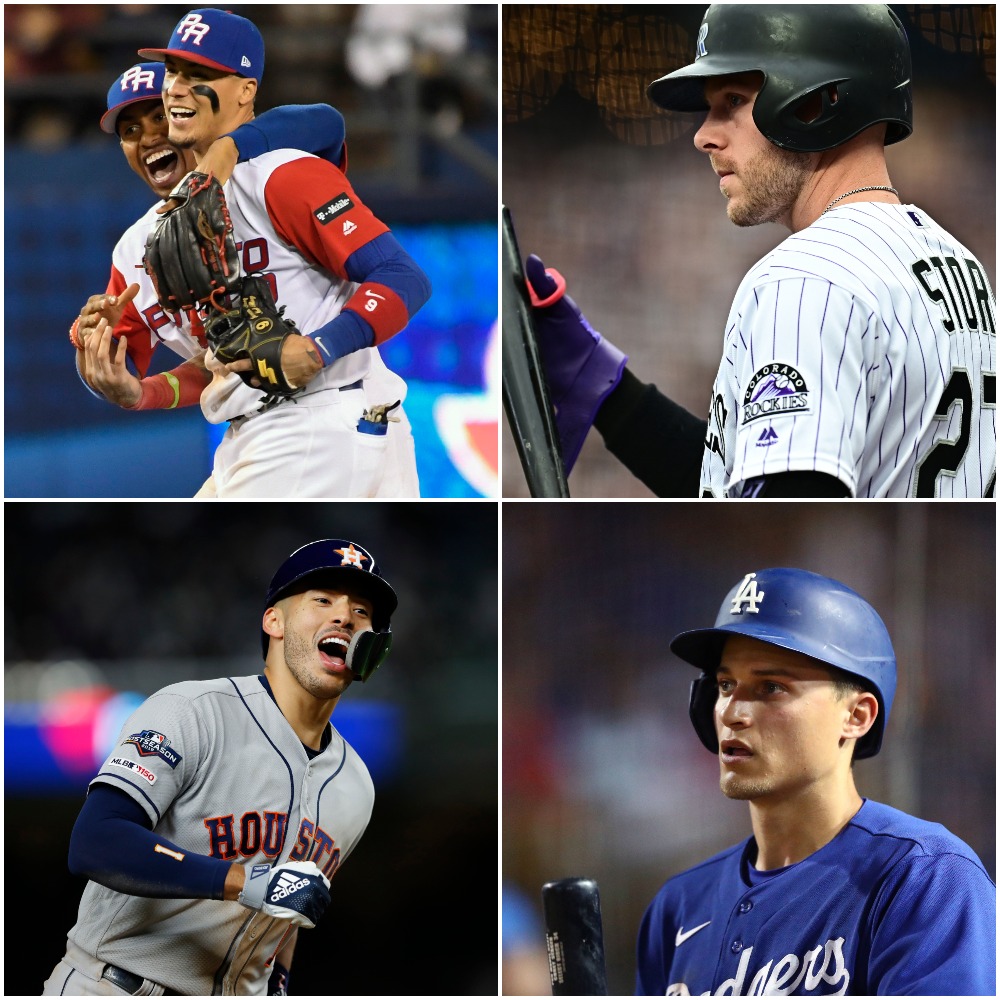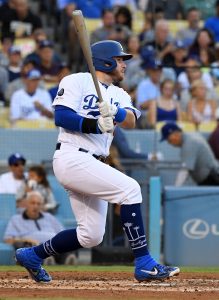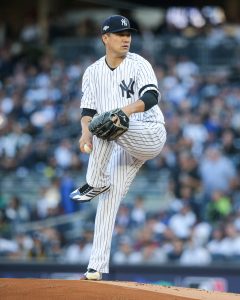Not long ago, the $200MM threshold was one rarely breached by MLB contracts. It has become increasingly common. Now, you might say, $300MM is the new bar for the most rarefied air. But the $200MM club is still rather exclusive, with just twenty members.
Typically, we evaluate contracts based upon the new money actually promised in the deal. That is, we don’t count already guaranteed future money when we write about contract extensions. But that’s not the only reasonable way to discuss cash, depending upon what you’re trying to measure. (And that’s all before considering deferrals and other major contractual elements.) In this case, what we’re hoping to examine is the biggest overall commitments teams have made to players.
MLB’s 20 biggest-ever contract commitments:
1. Mike Trout (Angels, $426.5MM): Is it possible to earn this much more than any other player, despite signing extensions rather than inking an open-market deal, and still remain a bargain? Well, yeah, if you are one of the absolute best baseball players ever to take the field. Joe Posnanski just graded Trout the 27th greatest player of all time based upon his accomplishments through his *rubs eyes disbelievingly* age-27 season. It was hardly surprising when the Halos added ten years and $360MM to the preexisting deal between the parties. This contract won’t actually kick in until 2021, so it’s impossible to evaluate it, but Trout was his typically unbelievable self last year and has yet to show any signs of slowing down.
2. Bryce Harper (Phillies, $330MM): It took a super-long, 13-year pact to get Harper to this level — the biggest contract ever when inked. But he wanted to ride out his career in one uniform and the Phils were willing to enter new contractual territory to bring him over from the division-rival Nationals. The first season wasn’t a barn-burner, with Harper producing good but hardly superstar-level numbers at the plate, but he’s still just 27 years of age and has plenty of time to make good on the deal.
3. Giancarlo Stanton (Marlins, $325MM): Another 13-season behemoth, this pact was inked years earlier than Harper’s and included opt-outs. The Yankees took over the contract after Stanton’s 2017 MVP season. While he has mostly produced high-end offensive numbers since putting pen to paper, he has also encountered some health issues and missed most of the 2019 season.
4. Gerrit Cole (Yankees, $324MM): The bidding got out of hand quickly as Cole flew past prior starting pitcher contracts and became the first (and thus far only) hurler to break the $300MM barrier. The contract didn’t just set a new high-water mark for overall guarantee to a pitcher; it also topped Trout with a monster $36MM average annual value over its nine-year term. We’re still waiting to see how this deal plays out.
5. Manny Machado (Padres, $300MM): As with the Harper deal, Machado’s was premised in no small part on the fact that he was still youthful enough that a lengthy and massive investment could pay huge dividends over a long period of time. This one went for ten years, so Machado is actually out-earning Harper on an AAV basis. He also turned in a good but underwhelming debut season with his new club.
6. Alex Rodriguez (Yankees, $275MM): This was one of the first monster deals of the MLBTR era. Tim Dierkes wrote at the time that “$28MM would be a pretty fair deal for him, maybe even a bargain.” Nobody could’ve foreseen the craziness that ensued — Biogenesis, talk of voiding the deal, a surprisingly civil mid-2016 retirement, etc. — but it was eminently reasonable to make the deal at the time. As it turned out, Rodriguez contributed only 23.1 rWAR from that point forward, though the fact that it seems underwhelming only serves to show just how good he was.
7. Nolan Arenado (Rockies, $260MM): This deal included $234MM in new money — a huge amount for a mid-tier spender but also a fair sum for one of the game’s most consistently productive position players. Though Arenado was as productive as ever in 2019, the Rox took a step back and had to consider trade scenarios over the offseason.
8. Alex Rodriguez (Rangers, $252MM): A-Rod opted out of this one, setting the stage for the already-covered pact. The original $252MM contract was perhaps the most successful ever deal of this magnitude. Rodriguez racked up 56.4 rWAR over the seven seasons that were completed before he exercised the exit clause.
9. Miguel Cabrera (Tigers, $248MM): It seemed questionable at the time for the Detroit organization to make this kind of commitment two years before Cabrera was slated for free agency. But nobody could’ve expected the kind of collapse that has occurred since. Cabrera is an all-time great hitter but has dealt with health issues and doesn’t profile as a highly productive mid-to-late-thirties player.
10. Stephen Strasburg (Nationals, $245MM): Strasburg is the chief protagonist in the tale of the Nationals’ rise, intervening disappointments, and eventual 2019 triumph. It’s fitting that he’ll likely end up spending his entire career in D.C., and Strasburg has shown he can dominate even without top-shelf velocity, though it’s also quite a risk on a 31-year-old hurler who has had his share of arm troubles.
10. Anthony Rendon (Angels, $245MM): Another newer deal resulted in the departure of another former Nats star. Rendon has long been a strong producer, but reached new heights with the bat in his most recent seasons and seems a good bet to keep up the steady output for years to come.
12. Albert Pujols (Angels, $240MM): The Halos hope their latest contract in this realm works out better than the last one. Pujols was already 32 when he went west and — we now know — his best years were behind him. The Halos got a few useful campaigns but it was nothing like the superstar output of yore.
12. Robinson Cano (Mariners, $240MM): Hello Cano came about when the Yankees didn’t pursue their stud second baseman quite as forcefully as many expected and the M’s stepped in with a bold bid. Cano returned 23.3 rWAR in his five seasons in Seattle, which was strong production and enough to allow the team to trade away the back half of the deal even after a PED suspension. We recently explored in a video just how rough that swap was for the Mets; it has worked out even better than hoped for Seattle.
14. Joey Votto (Reds, $225MM): While some would prefer their star first basemen to deliver more dingers, Votto has been an enormously productive hitter for quite some time. He’s coming off of a tepid 2018 (by his standards) and decidedly average 2019 showing, so there’s some reason to worry whether Votto is beginning to fade. But the game’s ultimate professional hitter has largely lived up to expectations and could yet add more value over the final years of his deal.
15. David Price (Red Sox, $217MM): The biggest pitching contract in history when signed, the Price deal hasn’t really paid out as hoped but also wasn’t a total train wreck. The southpaw has been a quality performer — but not the ace he once was — and the Sox won a title. It cost Boston half of the remainder of the deal to offload Price on the Dodgers as part of a bigger swap this past offseason.
16. Clayton Kershaw (Dodgers, $215MM): This was a slam dunk of a deal to sign. Kershaw was the game’s preeminent hurler entering his walk year in 2014. He ended up winning the MVP award in the season before the deal formally kicked in, so there’s little doubt the star southpaw would’ve cost bundles more in free agency. While back issues have reduced his dominance, Kershaw remains an excellent starter. When his opt-out decision was pending in the fall of 2018, he and the club agreed to an extension that expanded the original deal.
16. Christian Yelich (Brewers, $215MM): The most recent two-hundred-million-dollar man has emerged as one of the game’s best players since the Brewers acquired him and his team-friendly early-career extension from the Marlins. He agreed to his new contract just before Spring Training was halted — less than two months ago, if you can believe it — thus adding seven seasons and $188.5MM on top of the final two years he was already promised. If Yelich can maintain anything like the trajectory he has established over the past two seasons, this new contract will be a bargain.
18. Prince Fielder (Tigers, $214MM): Fielder had a monster debut season in Detroit, but this ultimately turned into another classic slugger contract that didn’t really pan out. He had one more good campaign left in him after a swap to the Rangers, but Fielder was ultimately forced into early retirement owing to neck surgery. The Texas organization was able to sort out a settlement with its insurer.
19. Max Scherzer (Nationals, $210MM): Wonder why teams sign these deals when so many seem to run into trouble? This is Exhibit A. Scherzer has just plain dealt in D.C., winning two Cy Young awards and placing in the top five of the voting in each of his five seasons with the Nats. We just examined whether an extension of the arrangement might be worth pursuing.
20. Zack Greinke (Diamondbacks, $206.5MM): And that brings us to … probably the biggest stunner on this list. Nobody saw Greinke going to Arizona, least of all for a deal with this much money in a six-season span. Good as he was in his platform season, and for years before that, Greinke managed to set an AAV record entering his age-32 season. He got off to a rough start with the Snakes, but ended up delivering strong results — so much so that the Arizona organization was able to recoup significant young talent (while also holding onto a big portion of the remaining salary) in a 2019 trade deadline blockbuster.



